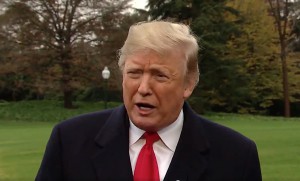President Donald Trump has proposed eliminating the tax credits that have helped promote the emergence of the battery-car market, though that proposal could hit a snag when Congress begins to consider the new White House budget proposal.
If anything, some lawmakers – backed by the auto industry – are pressing to extend the credits, which run up to as much as $7,500 for qualifying battery-cars.
Two manufacturers, Tesla and General Motors, have already crossed sales thresholds at which they will begin seeing the credits begin to phase out. As of January 1, Tesla buyers qualify for half the original number, of $3,750. The credits for the California-based automaker will expire entirely at the end of thise year.
The decision to phase out the credits comes as little surprise. White House economic adviser Larry Kudlow signaled the administration’s position last December when he said the president was looking closely at all green car incentives.
(Trump administration takes credit for fuel economy, emissions improvement. Click Here for the story.)
“As a matter of our policy, we want to end all of those subsidies,” Kudlow said. “And by the way, other subsidies that were imposed during the Obama administration, we are ending, whether it’s for renewables and so forth.”
The credit for battery-electric vehicles are determined according to the size of a car or truck’s battery pack and reaches a maximum of $7,500. The future of the program was considered uncertain as debate began on the tax rewrite authorized by the Republican-controlled Congress in 2017 but ultimately survived.
A congressional report released last November indicated that 57,066 U.S. motor vehicle buyers received some level of the subsidies since 2016. Congress, meanwhile, estimated the program would cost around $7.5 billion between the 2018 and 2022 fiscal years as demand for electric vehicles began to grow.
The program is wildly popular with consumer and environmental groups, especially at a time when automakers are launching a record number of new hybrids, plug-ins and pure battery-electric vehicles. Sales of plug-based vehicles alone roughly doubled in 2018 and demand is expected to continue growing this year despite an overall dip in the U.S. new car market.
But observers have warned that eliminating the benefit could short-circuit the market. Faced with the fact that its incentives dipped to $3,750 at the beginning of the year – and that they will drop by half again on July 1 – Tesla announced a $2,000 price cut at the beginning of the year.
(Click Here for more about GM blowing past 200K EV sales, triggering tax credit drop.)
General Motors cross the 200,000 sales threshold a few months after its California rival and will begin seeing its incentives phase out this coming spring. Nissan is expected to be the next to be hit, with Ford to follow.
“One of the certain, undeniable early barriers to entry is price,” Josh Boone, the executive director of Veloz, told TheDetroitBureau.com last December, referencing the fact that battery vehicles typically cost thousands of dollars more than conventional gas models. “So, at this stage, monetary incentives are really key.”
The tax credits have been popular on both sides of the aisle in an otherwise divided Congress, several lawmakers proposing plans to extend the incentives. But not all are ready to fight to retain the EV support program.
“The idea of the subsidies had to do with trying to make sure that electric vehicles would be a viable technology,” Dean Barrasso, the Wyoming Republican chairing the Senate Environment and Public Works Committee, said last December, after White House Kudlow signaled the administration’s position. “Well, that’s clearly there.”
(Trump ending EV subsidies by 2021. Click Here for the story.)
The president’s new budget proposal is expected to face a harsh reception on Capitol Hill, especially on the now Democratic-controlled House side. Whether lawmakers will make the EV credits an issue they would battle for remains to be seen.

